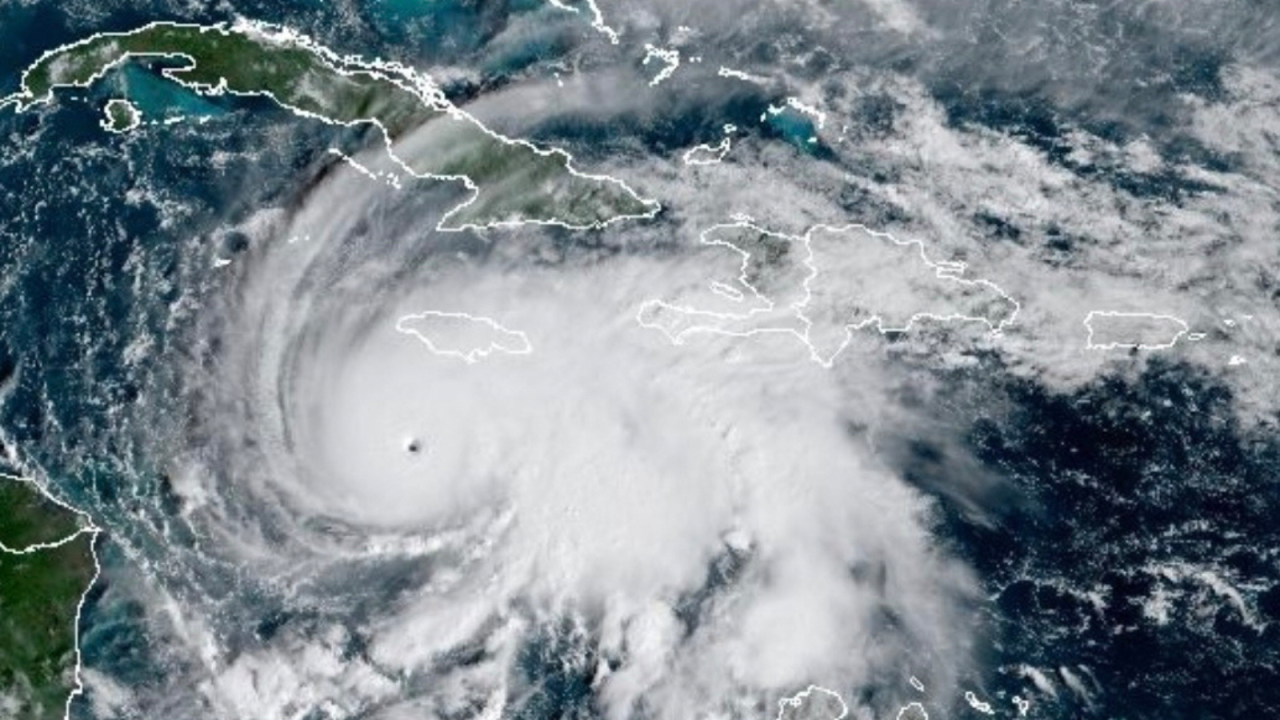
John Hawk Insunrated – Jamaica is facing one of the most catastrophic natural disasters in its history as Hurricane Melissa, a Category 5 storm with winds reaching 180 mph, tears across the island. The eyewall has begun to make landfall, bringing with it unprecedented destruction and chaos. Authorities have confirmed that the hurricane has already claimed lives in Jamaica, Haiti, and the Dominican Republic. Local residents are urged to remain indoors as conditions worsen by the hour. The powerful cyclone has been described by global meteorological agencies as the storm of the century, with experts warning that its impact could reshape the island for years to come. The combination of ferocious winds, torrential rainfall, and massive storm surges is expected to cause widespread flooding, landslides, and power outages across multiple regions. Jamaica’s emergency services have been stretched to the limit as communities brace for the full wrath of Melissa.
The people of Jamaica are enduring a terrifying ordeal as the core of Hurricane Melissa moves ashore. The Jamaican government, alongside international aid groups, has mobilized all available resources to minimize casualties. The National Hurricane Center has reported that Melissa’s winds are life-threatening, while the storm surge is expected to reach up to thirteen feet along the southern coast. Officials have warned that floods could inundate low-lying areas and cut off entire towns from access to emergency services. Shelters across Jamaica are filled with residents seeking safety, while thousands remain without power. Meteorologists describe Melissa as a once-in-a-lifetime storm, fueled by unusually warm Caribbean waters linked to climate change. The storm’s slow movement intensifies its destructive capacity, allowing more time for rainfall accumulation and flooding. Communities from Kingston to Montego Bay are already reporting significant structural damage and rising water levels.
Hurricane Melissa’s eyewall now slams across southern Jamaica with sustained winds reaching 180 mph. The storm rips roofs from buildings, snaps power lines, and overturns vehicles. Field reporters describe floodwaters rushing down mountain slopes like violent rivers that sweep through coastal towns and cities. The situation quickly escalates into a humanitarian crisis as communication lines fail and clean water runs scarce. The Red Cross and the United Nations express deep concern for Jamaica’s population and estimate that more than half the island faces direct impact. Relief teams prepare to deliver aid once conditions allow safe travel. The storm’s relentless force traps residents inside their homes while emergency crews fight brutal winds and rising waters to save stranded people.
Officials in Jamaica call Hurricane Melissa a physical and psychological marathon. The government has opened more than 800 shelters. Many residents remain home, hoping to survive the storm’s violent impact. Experts warn Melissa’s slow movement could cause catastrophic rainfall and landslides. Infrastructure collapse is now a serious concern across multiple regions. The Minister of Water and Climate Change said disaster readiness has improved. However, Jamaica’s energy grid and telecommunications systems face severe risk. Transport routes may also fail as flooding worsens across the island. Meteorologists say Melissa’s southern approach pushes massive seawater walls inland. Coastal communities are facing unprecedented storm surges and flooding. Jamaica’s mountainous landscape intensifies flash floods and landslide dangers. Rainwater is rushing downhill with uncontrollable force, sweeping through towns. Emergency teams are constantly monitoring rivers and drainage systems. Officials admit several regions might be isolated for days after the hurricane.
Hurricane Melissa’s devastation in Jamaica echoes around the world. Climate scientists warn that rising ocean temperatures make storms like Melissa stronger and more frequent. The Caribbean’s unusually warm waters, several degrees above average, fueled the storm’s rapid intensification. Experts caution that similar disasters will become the new normal without decisive global action on climate change. Jamaica’s Prime Minister calls on the world for help, urging nations to send medical aid, food supplies, and rebuilding materials. The United Nations declares Melissa a catastrophic event, while humanitarian groups plan long-term recovery efforts. The storm now moves toward Cuba and the Bahamas, drawing global attention to Jamaica’s unfolding tragedy. Communities across the island struggle to survive the most powerful hurricane in their history.
This article is sourced from cnn and for more details you can read at johnhawkinsunrated
Writer: Sarah Azhari
Editor: Anisa
John Hawk Insunrated – The resurgence of analog aesthetics modern creative enthusiasts is redefining how artists and collectors engage with…
John Hawk Insunrated - personal experiments that changed my approach to daily decisions have profoundly influenced my mindset and problem-solving…
John Hawk Insunrated - creativity doesn’t have complicated formulas or rules, yet many assume innovation requires complex methods. Simplifying creativity…
John Hawk Insunrated - travel inspires my creative projects by opening new perspectives, enriching experiences, and sparking innovative ideas that…
John Hawk Insunrated - curiosity plays a vital role of curiosity personal growth by motivating individuals to explore new ideas,…